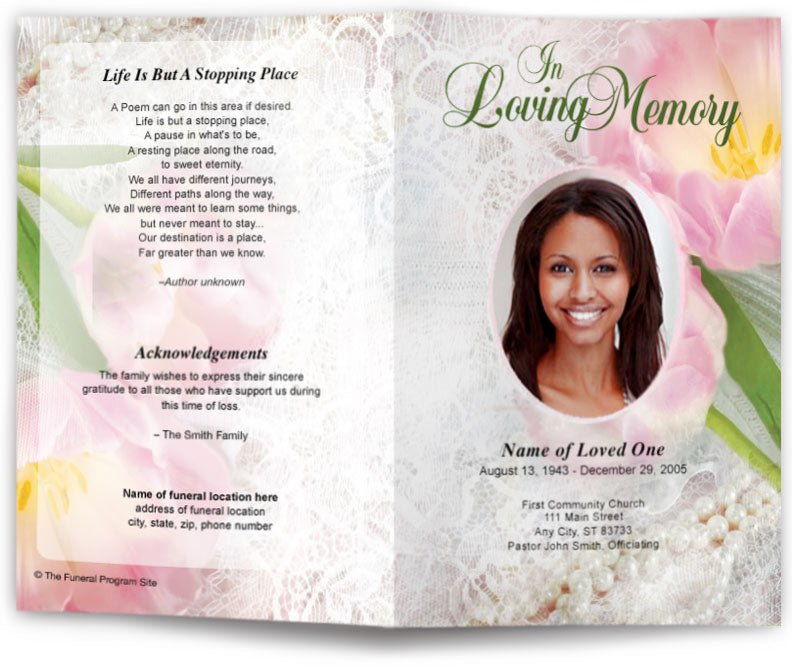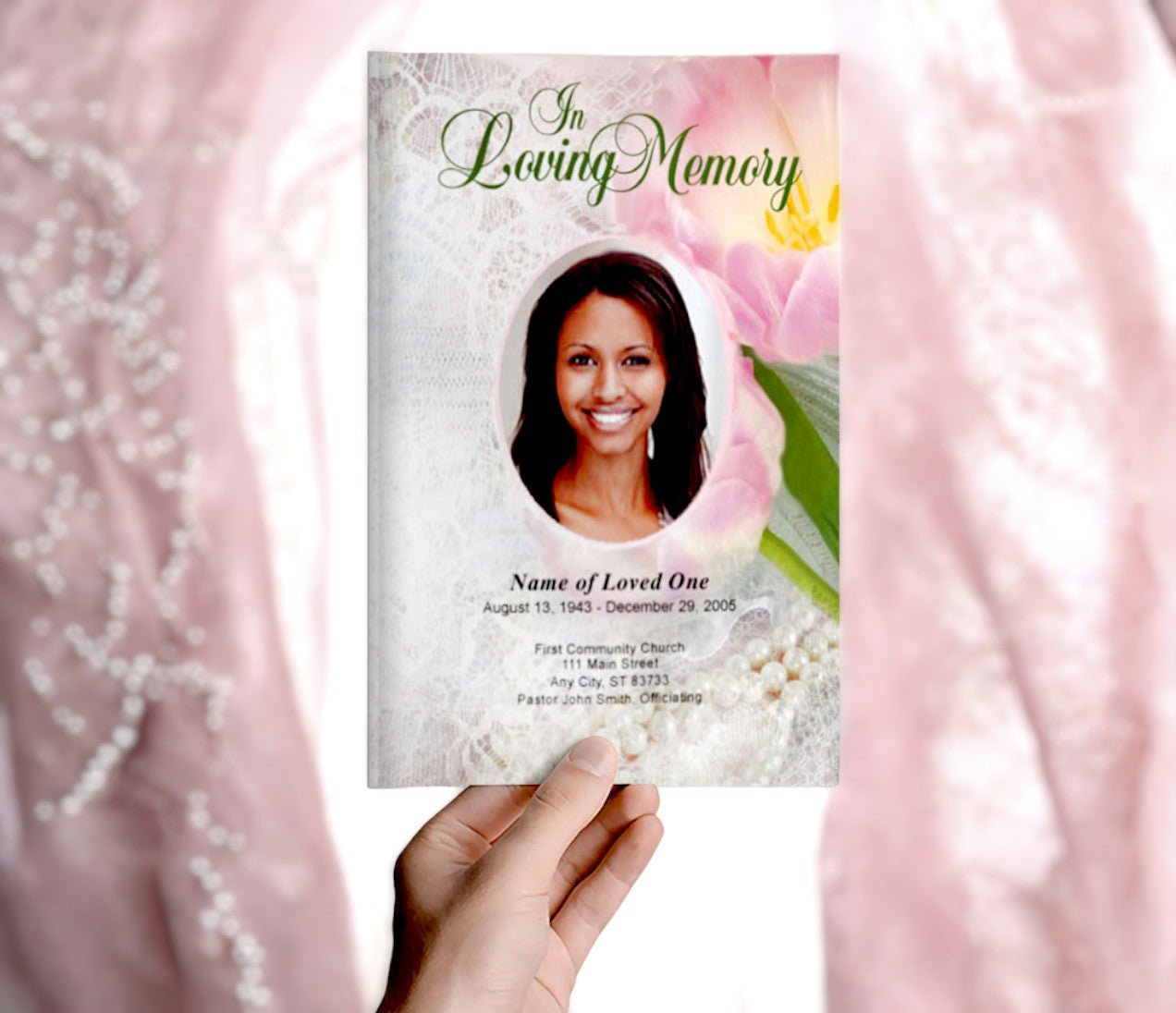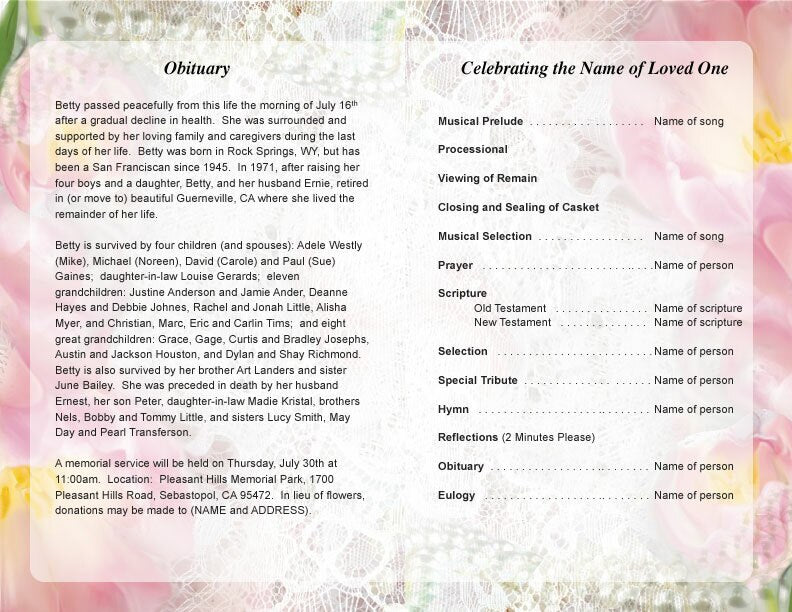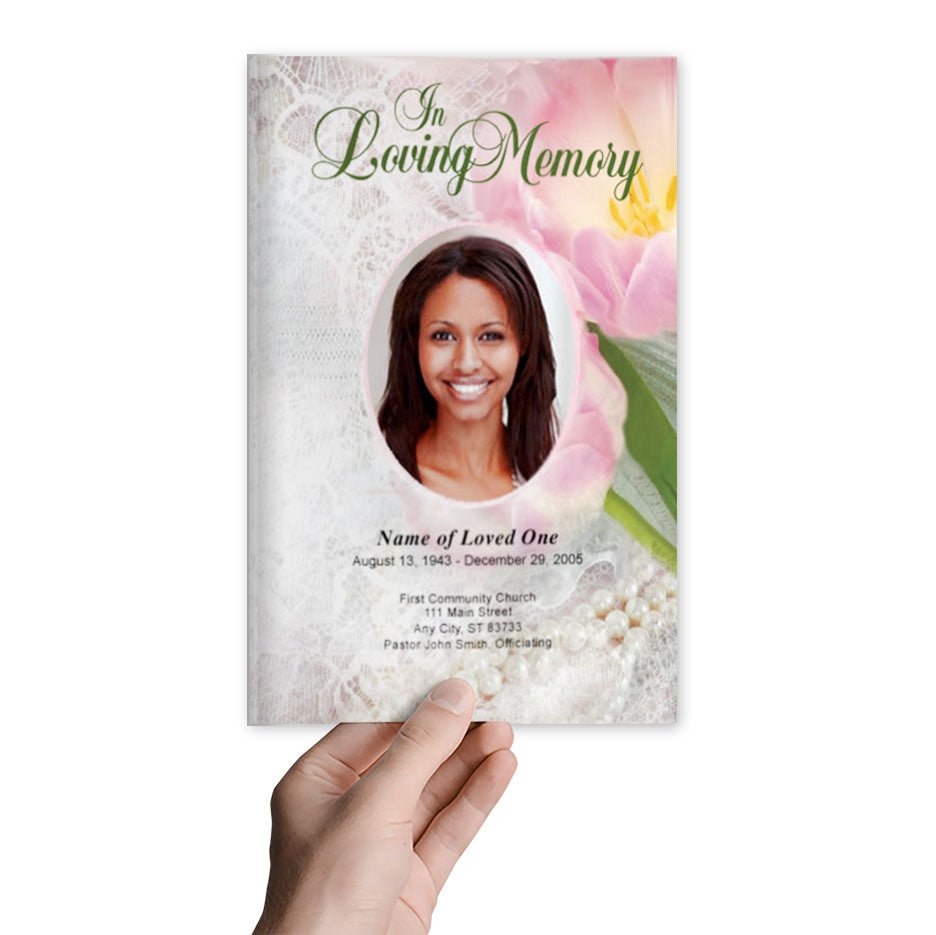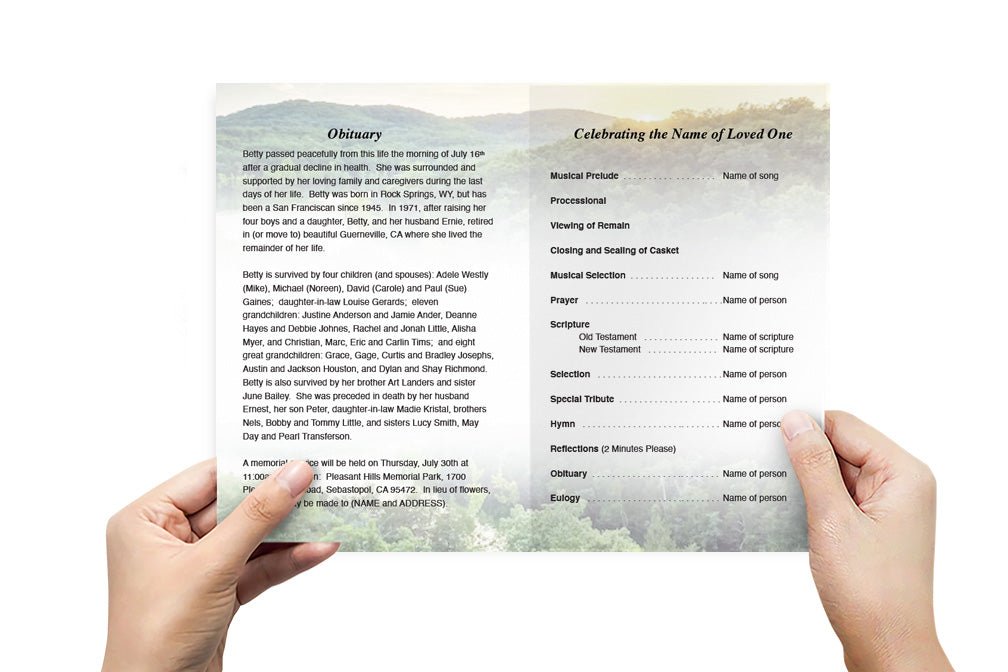Why is a Funeral Program Important?

A funeral program is an essential part of the funeral service, offering much more than just an informational guide. It plays a significant role in honoring the memory of the deceased, providing structure to the service, and offering comfort to those in mourning. While it may seem like a simple document, a funeral program holds deep meaning for both the family and friends of the deceased. Below, we’ll explore the importance of a funeral program and why it serves as a meaningful tribute to your loved one.
1. Provides Structure and Organization
A funeral program helps to organize the service, outlining the order of events and letting attendees know what to expect. For family members and guests, having a clear structure reduces any confusion or uncertainty during the service. It allows the ceremony to flow smoothly, ensuring that every aspect of the service—whether it's a eulogy, prayer, music, or special readings—is appropriately highlighted. The program can include:
-
The names of speakers or performers.
-
The schedule of the service, such as the arrival of the procession, opening prayers, and closing remarks.
-
Special notes, such as musical selections or specific rites or traditions relevant to the deceased’s faith.
By providing a roadmap for the service, the funeral program helps create a respectful and orderly experience for everyone involved.
2. Celebrates the Life of the Deceased
A funeral program is more than just a functional piece; it is a tribute to the life of the deceased. It allows families to highlight the personal details of the individual, such as their achievements, passions, and the impact they made on those around them. In addition to listing the basic facts, such as birth and death dates, a well-crafted program may include:
-
A biography or obituary that reflects the deceased’s life journey, values, and memories.
-
Photographs that capture significant moments, relationships, and milestones.
-
Quotes, poems, or scriptures that resonated with the deceased or were meaningful to the family.
This personalized content celebrates the unique qualities and experiences of the deceased, transforming the program into a cherished keepsake.
3. Acts as a Lasting Memorial
A funeral program is not only useful during the service, but it also serves as a lasting memento for those who attend. After the ceremony, guests may keep the program as a way to remember the life of the deceased. For the grieving family, the program acts as a permanent reminder of the love and memories shared. Over time, it becomes a treasured artifact that can be revisited, offering comfort and solace in moments of remembrance.
-
Keepsake for loved ones: The program can be kept as a tangible reminder of the person who has passed, symbolizing the shared experience of saying goodbye.
-
Incorporates personal touches: Including personalized messages or symbols that are meaningful to the deceased adds emotional depth to the program, making it even more special as a keepsake.
4. Offers Comfort and Solace to Mourners
During times of grief, having something tangible to hold onto can provide comfort. A funeral program offers mourners a sense of connection and a way to reflect on the life of the deceased. It provides a space for attendees to read personal anecdotes, meaningful prayers, and favorite quotes, which can offer solace and peace. The program also provides a sense of closure, offering attendees a structure in which they can participate in the service, such as knowing when to stand, when to pray, or when to observe a moment of silence.
-
A guide for emotional support: By including comforting readings or poems, the program can provide peace and emotional guidance for those dealing with the loss.
-
Reflection and participation: Mourners may also use the program as a means to follow along with the service, contributing to their sense of involvement and helping them process the emotional experience.
5. Provides an Opportunity for Guests to Share Memories
A funeral program is not just a keepsake for the immediate family, but it also offers a way for other attendees to share their memories of the deceased. Many programs include sections for guests to write personal messages, reflections, or share fond memories. These written tributes allow people to express their condolences and reflect on the impact the deceased had on their own lives. This aspect of the program helps strengthen the sense of community and support at the funeral.
-
Space for tribute: Some funeral programs allow for messages, photos, or brief tributes from guests, creating a collaborative and collective remembrance.
-
Shared reflections: By inviting attendees to add their memories, the program becomes a way for everyone to participate in the grieving process and celebrate the person’s life.
6. A Reflective and Cultural Tradition
For many, creating and distributing funeral programs is a longstanding cultural or religious tradition. Many cultures and religions have specific ways they honor the deceased, and the funeral program plays a vital role in this. Whether it’s incorporating religious symbols, prayers, or rituals, the program acts as a bridge between the past and present, reflecting the values, faith, and customs of the deceased’s life. A funeral program often reflects the religious rites or customs the family follows, ensuring the service honors the deceased according to those traditions.
-
Religious rituals and customs: Programs often include relevant religious texts, hymns, or prayers that guide the attendees through the service.
-
Cultural significance: The program may also feature cultural symbols, traditional designs, or language that reflects the deceased’s heritage.
By honoring cultural and religious traditions, the funeral program ensures that the service is consistent with the deceased’s beliefs and practices.
7. Helps with Funeral Planning and Coordination
In the often-stressful time of funeral planning, a program helps ensure that every detail is accounted for. It serves as an important tool for coordinating various elements of the service, such as the selection of music, readings, speakers, and the order of events. Creating the program allows families to organize the service and clearly communicate all relevant information to guests. It can also be a helpful resource for funeral homes and service providers to ensure the program flows as planned.
-
Helps with time management: The program can include specific time slots for speeches, music, or other rituals, helping the service stay on track.
-
Clear communication: The program clearly communicates the schedule to attendees, ensuring everyone knows what to expect and when.
Why is a Funeral Program Important Conclusion
A funeral program may seem like a small detail, but its importance cannot be overstated. It offers structure to the service, celebrates the life of the deceased, acts as a keepsake, and provides emotional support for mourners. By including personalized details, the funeral program becomes a meaningful tribute that reflects the personality, values, and legacy of the person who has passed away. Whether it serves as a guide during the service or a lasting memorial for loved ones to cherish, a funeral program plays an essential role in honoring the deceased and providing comfort to those who remain.






















